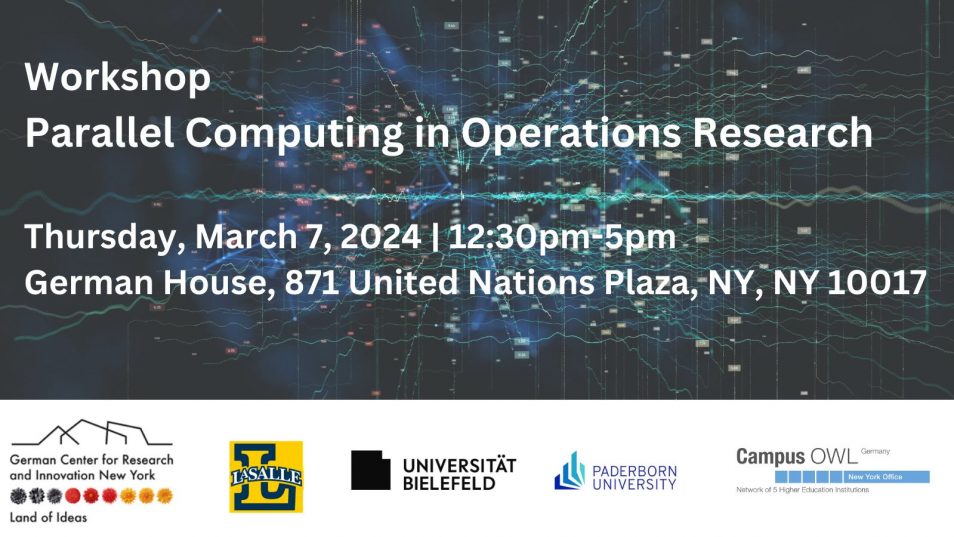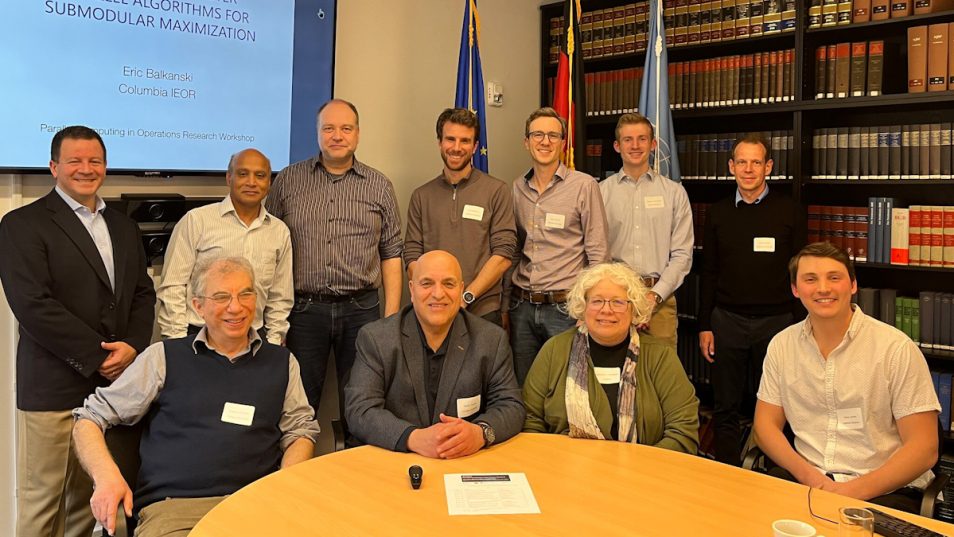Parallel Computing in Operations Research
 © Campus OWL
© Campus OWL
The workshop focused on the design, implementation, and computational evaluation of parallel algorithms for solving computationally intensive OR problems. Of particular interest were topics related to parallel optimization, high-performance computing, simulation, quantum computing, and the interplay between data science/machine learning and OR.
Event Information
March 7, 2024, 12:30 PM to 5:00 PM
German House
Organizer(s): Campus OWL New York Office, La Salle University, Bielefeld University, Paderborn University, DWIH New York

An increasingly important stream of Operations Research (OR) is dedicated to solving computationally intensive problems with parallel algorithms across a wide range of scientific challenges (e.g., NP-hard optimization problems, simulations, data-driven parameterization of algorithms) and application domains (e.g., transportation, traffic, logistics, manufacturing, finance, marketing, energy, health, and social networks, among others). Although parallel computing in OR has a long tradition, it has recently gained momentum and is predicted to continue to do so due to technological advances and innovations such as high-performance computing, GPGPU, quantum computing, and emerging fields based on interfaces with neighboring fields such as data analytics and machine learning.
A variety of scientific (sub)areas of OR and related fields address issues of parallel computing in OR. They are implicitly covered by many journals, conferences and workshops, special interest groups, and (academic, industrial, academic-industrial) projects. However, there are only a few forums that are specifically dedicated to parallel algorithms in OR as their primary focus.
The development and application of parallel algorithms in operations research is enabling innovation and solving critical societal challenges. For example, coordinating a mass of spontaneous volunteers in the aftermath of a natural disaster requires efficient and effective algorithms that are rarely available in a traditional, sequential algorithmic environment. Similarly, in manufacturing environments, planning energy-efficient and cost-effective production schedules requires intelligent and fast optimization algorithms. Finally, modern logistics and transportation in both rural and urban areas require parallel operations research algorithms to plan and operate real-time logistics and transportation systems. Overall, innovations in parallel computing in operations research support the development of resilient and sustainable societies.
The workshop brought together researchers and practitioners to exchange and develop ideas, share knowledge and experiences, and discuss open problems in parallel computing in OR. It initiated and fostered collaborations and to support community building. For example, it may lead to joint projects, future workshops and conference tracks, joint publications of research papers, research visits, and the establishment of special interest groups in research communities.
German House
German Center for Research and Innovation (DWIH) New York
Address:
871 United Nations Plaza
New York, NY 10017, USA
Phone:
+1 (212) 339 8680
Email:
info.newyork@dwih.org
